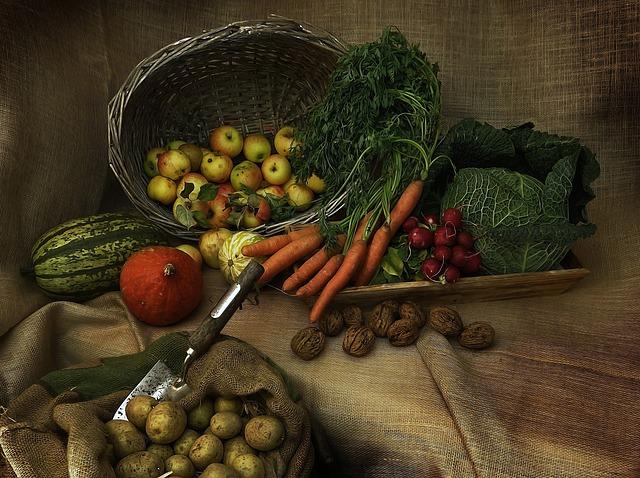As the sun sets on the golden years of an athlete’s career, the body embarks on a journey of transformation, navigating the intricate dance of time and endurance. With each stride, swing, or stroke, ageing athletes continue to defy the odds, fueled by a passion that knows no expiration date. Yet, beneath the surface of perseverance lies a subtle shift in nutritional needs, whispering the question: should the dietary guidelines that once propelled them to greatness now evolve to meet the demands of their seasoned years? In this exploration, we delve into the complex interplay between ageing and athleticism, seeking to uncover whether the traditional nutritional playbook should be rewritten for those who refuse to hang up their gear. Join us as we journey through the science and stories that challenge the status quo, questioning if a tailored nutritional strategy could be the key to unlocking sustained vitality and performance for athletes in their prime of wisdom.
Adapting Nutritional Needs for the Ageing Athlete
As athletes age, their bodies undergo numerous physiological changes that can impact their performance and overall health. Therefore, it’s crucial to consider whether traditional nutritional guidelines are still appropriate. One of the key factors to focus on is the macronutrient distribution. Older athletes may benefit from a higher protein intake to counteract muscle loss, while maintaining adequate carbohydrate levels to fuel endurance. Additionally, healthy fats can support joint health and provide a concentrated energy source.
- Hydration: Older athletes often experience reduced thirst sensation, making it essential to monitor fluid intake proactively.
- Micronutrients: Vitamins such as B12 and D, along with minerals like calcium and magnesium, become increasingly important to support bone density and metabolic functions.
- Antioxidants: A diet rich in antioxidants can help combat oxidative stress, which tends to increase with age and intense physical activity.
Incorporating these adjustments into the diet of ageing athletes not only supports their physical performance but also enhances recovery and long-term well-being. Tailoring nutritional plans to meet these evolving needs ensures that athletes can continue to perform at their best, regardless of age.
Balancing Macronutrients for Sustained Performance
As athletes age, their bodies undergo various physiological changes that can affect their nutritional needs. One crucial aspect to consider is the balance of macronutrients—carbohydrates, proteins, and fats. While younger athletes might thrive on high-carbohydrate diets to fuel their intense training sessions, ageing athletes often require a more tailored approach to ensure sustained performance. This doesn’t just mean shifting the macronutrient ratios but also focusing on the quality of these nutrients.
- Proteins: Increased protein intake can help combat the natural loss of muscle mass, known as sarcopenia, that occurs with ageing. Quality sources such as lean meats, fish, and plant-based proteins can aid in muscle repair and recovery.
- Fats: Healthy fats, including omega-3 fatty acids found in fish and flaxseeds, support joint health and reduce inflammation, crucial for maintaining agility and reducing injury risk.
- Carbohydrates: While still important, the focus might shift towards complex carbohydrates like whole grains and legumes, providing sustained energy release and aiding in blood sugar control.
Adjusting the macronutrient balance isn’t about radical changes but fine-tuning to align with the body’s evolving needs. By embracing these adjustments, ageing athletes can continue to perform at their best, preserving their vitality and extending their athletic longevity.

Micronutrient Considerations in Later Athletic Years
As athletes age, their bodies undergo various physiological changes that can impact their nutritional needs. Micronutrients play a crucial role in maintaining health and performance, and it’s important for older athletes to pay attention to these essential elements. Aging can affect the absorption and metabolism of certain vitamins and minerals, necessitating potential adjustments in dietary intake.
- Calcium and Vitamin D: Crucial for bone health, these nutrients help prevent osteoporosis, which older athletes are at increased risk of due to higher physical demands.
- Vitamin B12: With age, absorption can decrease, affecting energy levels and cognitive function.
- Antioxidants (Vitamin C, E, and Selenium): These help combat oxidative stress and inflammation, which can be more prevalent in ageing athletes due to prolonged physical activity.
- Iron: Important for oxygen transport and energy metabolism, though needs may vary depending on gender and specific athletic activities.
Tailoring micronutrient intake to meet these changing needs can help older athletes maintain their competitive edge while safeguarding their health. By incorporating a balanced diet rich in these essential nutrients, athletes can continue to thrive and perform at their best, even as the years advance.

Tailored Dietary Strategies for Enhanced Recovery
Ageing athletes require distinct nutritional adjustments to support their unique recovery needs. As the body ages, its ability to absorb and utilize nutrients efficiently can diminish, making the strategic selection of dietary components crucial. Protein intake becomes paramount; older athletes benefit from higher-quality protein sources to preserve muscle mass and repair tissues. Additionally, incorporating anti-inflammatory foods such as berries, leafy greens, and nuts can mitigate the oxidative stress and inflammation often exacerbated by intense physical activity.
Hydration is another critical factor, as the sense of thirst can diminish with age, leading to potential dehydration. Encouraging regular fluid intake, enriched with electrolytes, can enhance recovery and performance. Moreover, including a variety of micronutrients like vitamin D, calcium, and omega-3 fatty acids can aid in maintaining bone density and joint health. Emphasizing these elements within a tailored dietary strategy not only supports recovery but also enhances overall longevity and performance for ageing athletes.
- Focus on high-quality protein sources
- Incorporate anti-inflammatory foods
- Ensure adequate hydration with electrolytes
- Include essential micronutrients
